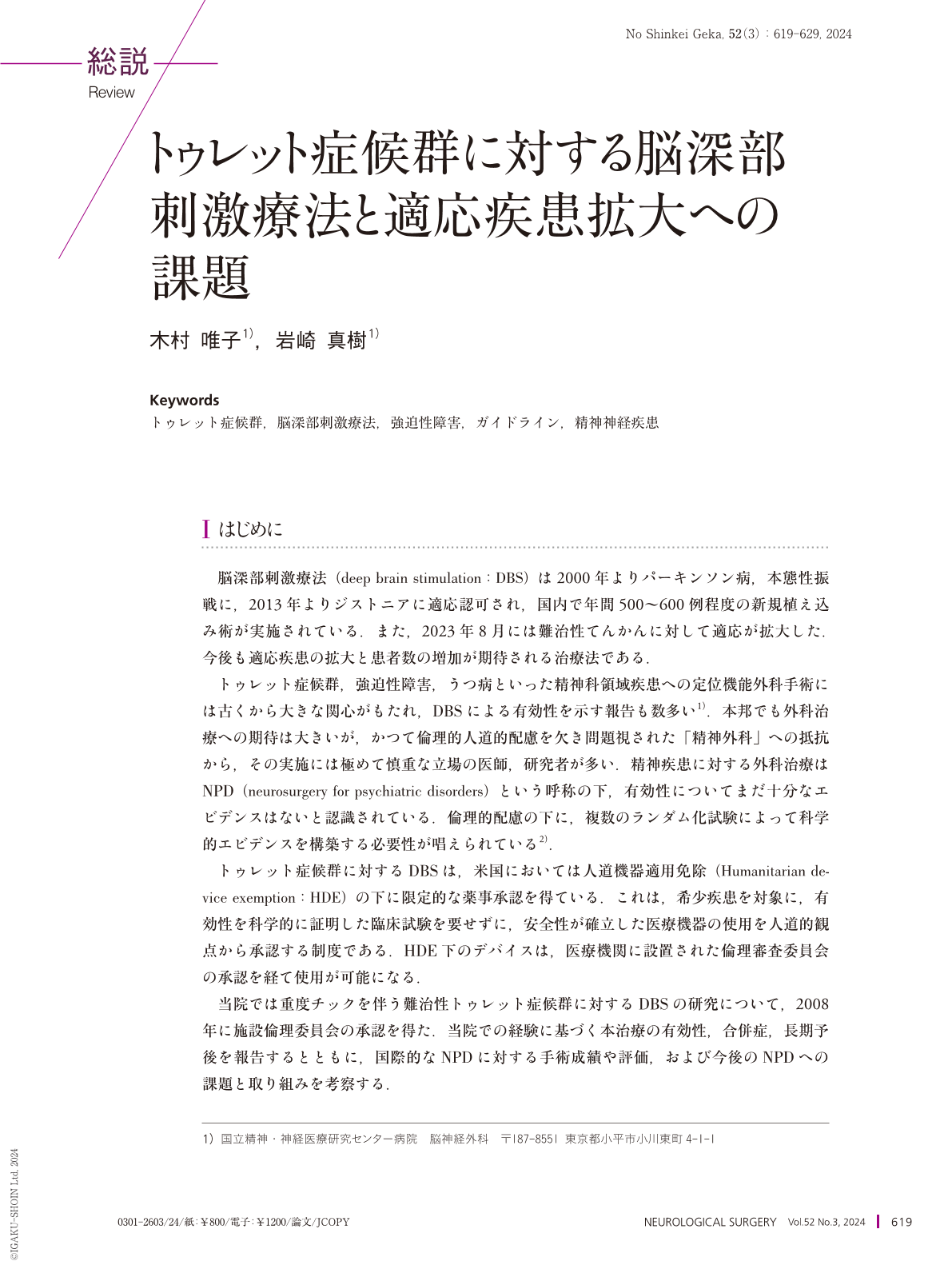Japanese
English
- 有料閲覧
- Abstract 文献概要
- 1ページ目 Look Inside
- 参考文献 Reference
Ⅰ はじめに
脳深部刺激療法(deep brain stimulation:DBS)は2000年よりパーキンソン病,本態性振戦に,2013年よりジストニアに適応認可され,国内で年間500〜600例程度の新規植え込み術が実施されている.また,2023年8月には難治性てんかんに対して適応が拡大した.今後も適応疾患の拡大と患者数の増加が期待される治療法である.
トゥレット症候群,強迫性障害,うつ病といった精神科領域疾患への定位機能外科手術には古くから大きな関心がもたれ,DBSによる有効性を示す報告も数多い1).本邦でも外科治療への期待は大きいが,かつて倫理的人道的配慮を欠き問題視された「精神外科」への抵抗から,その実施には極めて慎重な立場の医師,研究者が多い.精神疾患に対する外科治療はNPD(neurosurgery for psychiatric disorders)という呼称の下,有効性についてまだ十分なエビデンスはないと認識されている.倫理的配慮の下に,複数のランダム化試験によって科学的エビデンスを構築する必要性が唱えられている2).
The efficacy of deep brain stimulation(DBS)for Tourette's syndrome is being well established. Herein, we performed DBS in 38 patients and confirmed that its efficacy was comparable with that reported internationally. Although many patients experience severe symptoms, the indications for surgery remain controversial.
One reason for this is that Tourette syndrome has the potential for spontaneous remission, while DBS treatment results in the need for long-term management, which can be difficult for some patients. Furthermore, while several targets for DBS have been reported, no treatment guidelines have yet been established.
The efficacy of DBS for neuropsychiatric disorders, such as obsessive-compulsive disorder, depression, and dementia, is gradually being reported. However, this use has many limitations in terms of expectations similar to those seen with Tourette's syndrome, leading to problems with expanding indications for these disorders.
Indications for these disorders should be addressed in conjunction with ethical issues. It is expected that more data on this topic will be collected in the future.

Copyright © 2024, Igaku-Shoin Ltd. All rights reserved.


